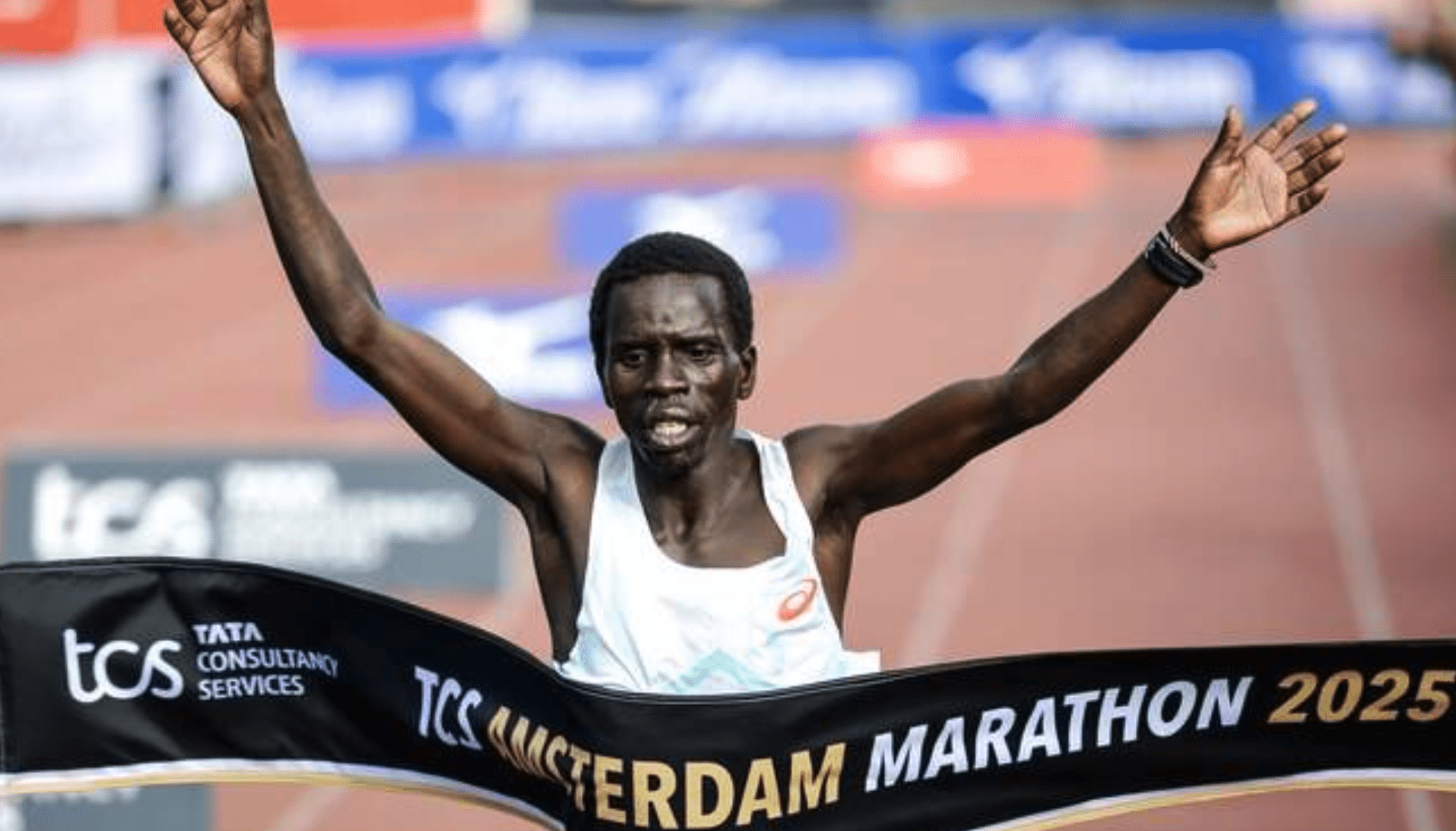AMSTERDAM — In a city that has quietly become one of road running’s fastest laboratories, the TCS Amsterdam Marathon delivered another proof point on Sunday as Kenya’s Geoffrey Toroitich Kipchumba won in 2 hours 03 minutes 30 seconds, taking nine seconds off the course record. Ethiopia’s Aynalem Desta captured the women’s title in 2:17:37, headlining a podium sweep and vaulting herself into the global conversation in only her second year at the distance.
The men’s race, a World Athletics Platinum Label event, opened conservatively by recent super-shoe standards (29:16 at 10K; 1:02:14 at halfway), with a decorated pack that included defending champion Tsegaye Getachew, Tanzania’s Gabriel Geay, and two-time Olympic champion Joshua Cheptegei testing his third marathon. When the real racing started after 30 kilometers (1:28:22), the pack thinned, and by the late stages it was down to Kipchumba, Getachew and Getaneh Molla. Kipchumba finally made the decisive move inside the final three kilometers and never looked back. He crossed in 2:03:30; Getachew (2:04:18) and Molla (2:04:19) completed the podium. Cheptegei set a personal best of 2:04:52 in fifth.
Kipchumba’s time is notable for two reasons. First, it lowers a record that had survived the Tamirat Tola era (2:03:39 from 2021). Second, it reflects how skillfully Amsterdam’s organizers have tuned the course for negative-split racing that rewards patience—an approach that has routinely produced sub-2:05 outcomes without Berlin’s out-and-back spectacle or London’s stacked pacer grids. The Dutch course’s blend of riverside flats and late-stadium finish continues to invite last-10K ambition rather than early fireworks.
The women’s script rhymed but did not repeat. Desta, a former steeplechase specialist, sat inside an Ethiopian-dominated lead group through 10K (32:41) and halfway (1:09:10). By 30K, four remained—Desta, Bertukan Welde, Mekides Shimeles and Waganesh Mekasha—before attrition and the headwind of expectation did their work. Desta, 21, pulled clear late to win in 2:17:37, with Welde second (2:17:56) and Shimeles third (2:19:56). It was an Ethiopian sweep that also underscored the nation’s growing depth beyond its better-known stars.
On the domestic front, Britain’s Phil Sesemann—already a cult favorite for his Paris Olympic marathon—ran a measured 2:07:18 for 10th, suggesting his marathon ceiling remains untested. And the men’s Dutch title went to Khalid Choukoud (2:08:00), a veteran presence who keeps writing late-career chapters for the Netherlands. (Choukoud’s national podium is noted in multiple reports from Dutch outlets and result services.)
If there was a meta-story here, it was how Amsterdam continues to function as an elite proving ground. The race’s profile lacks some of the World Marathon Majors’ TV posture, but its outcomes regularly punch above its media weight—especially for athletes transitioning from track credentials to road relevance. Cheptegei’s 2:04:52 PR sits precisely in that frame: not a disruption of the all-time lists, but an unmistakable step forward in the event he appears to be adopting.

For the women, Desta’s win is more than a breakout; it’s a data point inside an increasingly crowded 2:17–2:19 band where championship selection, pacing chemistry, and weather often decide medals. Amsterdam’s timing—four weeks after the thick of fall majors—also provides late-season clarity: who’s ascending, who’s durable, and who is ready to gamble on spring targets.
Sources: World Athletics report and full results; additional confirmation via international wires.



